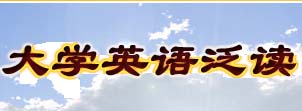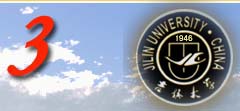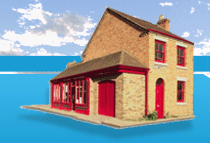| 吉林大学远程教育学院 |






|
|
|
|
|
|


|
>>>> Unit One >>>> Unit Two >>>> Unit Three >>>> Unit Four >>>> Unit Five >>>> Unit Six >>>> Unit Seven >>>> Unit Eight >>>> Unit Nine >>>> Unit Ten >>>> Unit Eleven >>>> Unit Twelve >>>> Unit Thirteen >>>> Unit Fourteen >>>> Unit Fifteen >>>> Unit Sixteen >>>> Unit Seventeen >>>> Unit Eighteen >>>> Unit Nineteen >>>> Unit Twenty >>>> Unit Twenty-one >>>> Unit Twenty-two >>>> Unit Twenty-three >>>> Unit Twenty-four >>>> Unit Twenty-five >>>> Unit Twenty-six >>>> Unit Twenty-seven >>>> Unit Twenty-eight >>>> Unit Twenty-nine >>>> Unit Thirty |
|
Multiple-choice Questions 1. According to the author, Schliemann regarded _______ as the most important thing in his life. A) reading Homerí»s poems B) archaeological diggings C) the discovery of treasure D) the discovery of Troy 2. Schliemann didní»t start carrying out his plan until he was 46 most probably because he ______ . A) had first of all to establish a family B) spent many years learning to be an archaeologist C) couldní»t afford the great expenses before then D) was devoted to other academic activities 3. Schliemann started to dig in the hill of Hissarlek because ________ . A) it stood one mile from the coast B) it was a good natural fort C) Homerí»s description led him there D) the Greek ships had arrived there 4. Schliemann missed the actual city of Troy because ________ . A) Troy was buried too deep to be discovered B) too many cities had been built on the same spot C) he didní»t get enough information about the ancient city D) Troy was located in a neighbouring hill 5. Following the discovery of a lot of wonderful things at Hissarlek, Schliemann _______ . A) decided to look for the treasure of King Priam B) was satisfied and felt on top of the world C) wrote a book about it D) moved to another archaeological site 6. Schliemann went to dig in the ruins of Mycenae to ________ . A) prove that it was a real city B) look for the grave of King Priam C) search for Agamemnoní»s remains D) find King Priamí»s treasure 7. Schliemann was able to discover the grave of Agamemnon because ______ . A) he was the first archaeologist to dig in the site B) he followed the descriptive details of a Greek history C) he was more experienced in digging than other archaeologists D) he was more hardworking than other archaeologists 8. The authorí»s conclusion that Schliemann deserved his success because he followed the advice of Homer suggests that __________ . A) Schliemanní»s efforts were inspired by the beauty of Homerí»s poems B) Schliemann had made clever use of literature to find historical treasure C) accidental success is worthy of our admiration D) archaeologists should reevaluate classical literature Translate the following sentences into Chinese. 1. They built a great, hollow, wooden horse outside the city, and the Trojans believed this was some holy treasure valued by the Greeks. 2. He believed that it lay behind the protection of high walls, and he was sure that some of these walls were still standing. 3. In fact, Schliemann missed the actual Troy of Homerí»s poem. He dug too deeply and went down through the city for which he was hunting---the walls he found were the walls of an older city. 4. The treasure at Troy had indeed been collected and hidden in a hurry. This new fortune had been buried with a great king and his family for their lasting honour. 5. When Schliemann lifted the finest mask he saw the actual face of the ancient kingí¬í¬his eyes, his mouth, his perfect teeth. Even the skin of the face was still there. Staring at the perfection of this face was probably Schliemanní»s greatest moment
|
| 版权所有COPYRIGHT(C) 2005 DEC OF JLU |